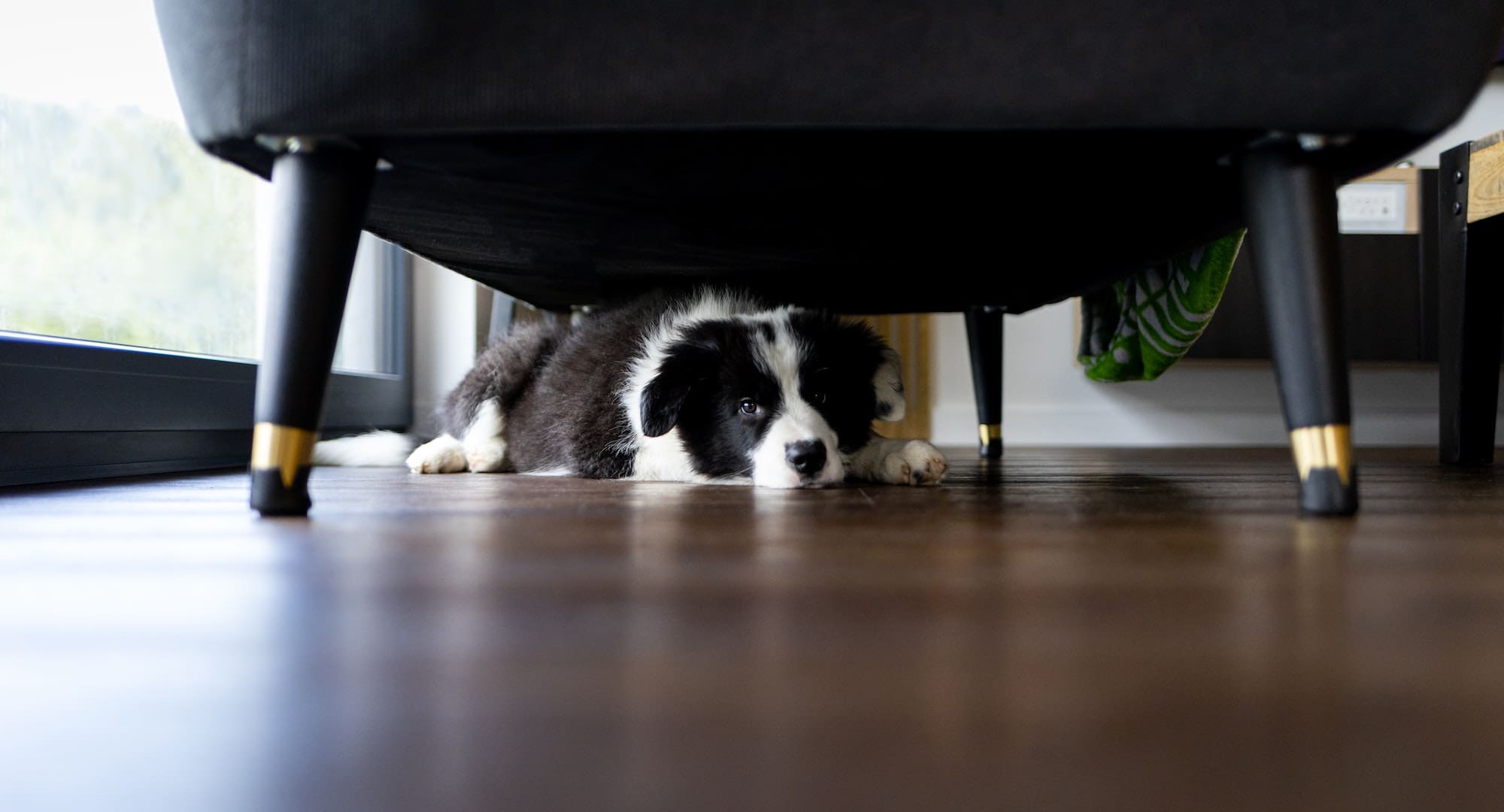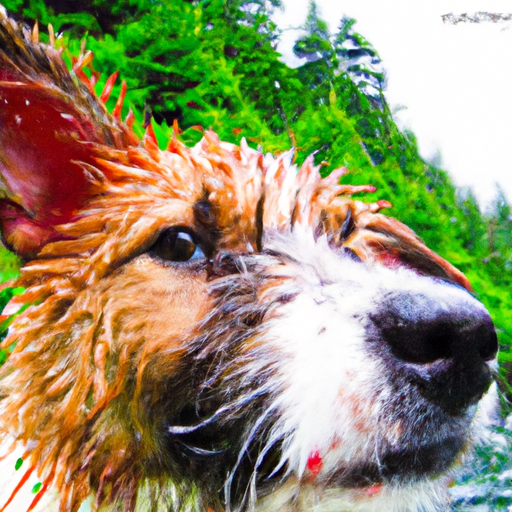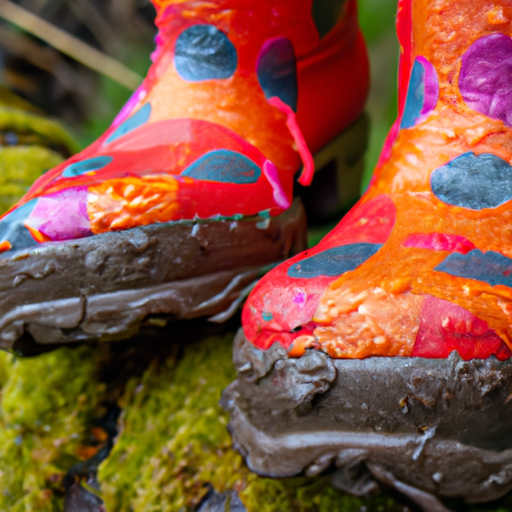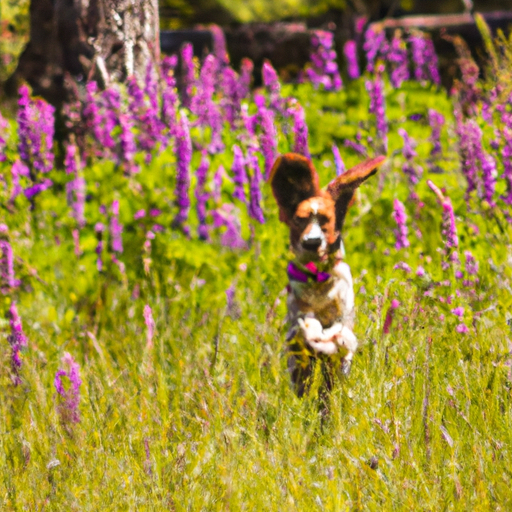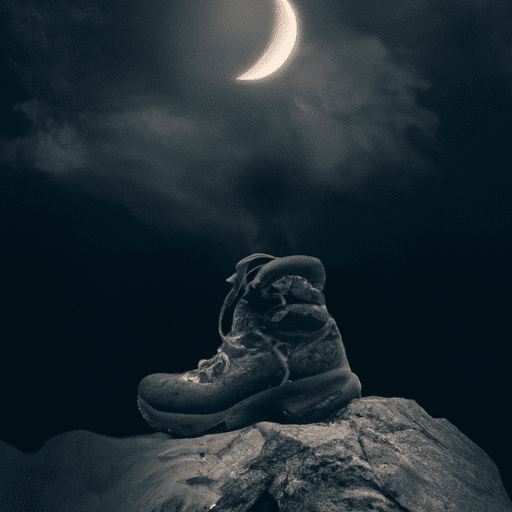Having a new puppy is an exciting and joyful experience, but it's important to be aware of the challenges that may arise, like separation anxiety. If not addressed early on, separation anxiety can lead to destructive behavior and unnecessary stress for both you and your furry friend. Luckily, there are effective ways to prevent separation anxiety in your puppy. By gradually introducing them to being alone, creating a comfortable environment, and providing mentally and physically stimulating activities, you can help your puppy feel more secure and confident when you're not around.
Understanding Separation Anxiety
Separation anxiety is a common behavioral issue that many puppies experience when they are separated from their owners. It is important to understand what separation anxiety is before taking the necessary steps to prevent and manage it.
Definition of Separation Anxiety
Separation anxiety refers to the distress and anxious behavior displayed by puppies when they are left alone or separated from their owners. It is a result of the deep bond and attachment that puppies form with their human caregivers. When puppies become overly dependent on their owners, they may feel anxious and stressed when left alone, leading to behaviors such as excessive barking, destructive chewing, and inappropriate elimination.
Causes of Separation Anxiety
There are several factors that can contribute to the development of separation anxiety in puppies. These include:
- Early life experiences: Puppies who have experienced traumatic events or have been separated from their mother and littermates too early may be more prone to developing separation anxiety.
- Lack of socialization: Puppies who have not been adequately socialized with other dogs and people may become overly reliant on their owners and feel anxious when left alone.
- Owner behavior: If owners are inconsistent in their interactions and routines with their puppies, it can contribute to separation anxiety. For example, sudden changes in the amount of attention or time spent with the puppy can trigger anxiety.
Setting Up a Comfortable Environment
Creating a comfortable environment for your puppy is an important step in preventing separation anxiety. By providing a designated space, appropriate bedding and toys, and establishing a routine, you can help your puppy feel safe and secure even when you're not around.
Creating a Designated Space
Designating a specific area for your puppy can help provide a sense of security. This can be a crate, a room, or a sectioned-off area of your home. Make sure the space is safe and free from any hazards. It should be comfortable and have enough room for your puppy to move around and stretch.
Providing Appropriate Bedding and Toys
Make sure your puppy has a comfortable bed or mat to lie on. Providing familiar scents, such as a blanket or an item of clothing with your scent, can also help your puppy feel secure. Additionally, providing appropriate toys can help keep your puppy occupied and prevent boredom, which can exacerbate separation anxiety.
Establishing a Routine
Establishing a consistent daily routine can help your puppy feel more secure and confident. Maintain a regular schedule for feeding, exercise, toileting, and playtime. Consistency and predictability can help reduce your puppy's anxiety and make them feel more at ease when you have to leave them alone.
Gradual Introduction to Alone Time
Gradually introducing your puppy to being alone is essential for preventing separation anxiety. By starting with short periods of separation, using positive reinforcement techniques, and gradually increasing the time spent alone, your puppy can develop confidence and independence.
Start with Short Periods of Separation
Begin by leaving your puppy alone for short periods, such as a few minutes, and gradually increase the duration over time. This allows your puppy to become accustomed to being alone without becoming overwhelmed. Monitor their behavior during these initial separation periods to ensure they are coping well.
Use Positive Reinforcement Techniques
Positive reinforcement techniques, such as rewarding your puppy with treats or praise when they display calm behavior during alone time, can be highly effective. Associating positive experiences with being alone can help your puppy develop a more positive attitude towards separation.
Increasing the Time Spent Alone Gradually
Once your puppy is comfortable being alone for short periods, gradually increase the duration. This should be done at a pace that your puppy is comfortable with, always monitoring their behavior for signs of anxiety. Remember to continue using positive reinforcement techniques to reinforce calm behavior.
Exercise and Mental Stimulation
Regular exercise and mental stimulation are vital for a puppy's overall well-being and can also help prevent separation anxiety.
The Importance of Regular Exercise
Providing your puppy with regular exercise not only helps to keep them physically fit but also releases pent-up energy. This can help reduce anxiety and promote relaxation. Aim for daily exercise sessions, such as walks, playtime, or interactive games, to keep your puppy physically and mentally stimulated.
Engaging Activities to Keep Your Puppy Occupied
Engaging your puppy in activities that keep their minds occupied can help prevent boredom and excessive anxiety. Some examples include puzzle toys, treat dispensers, and interactive games that require problem-solving skills. These activities can help redirect your puppy's focus and provide mental stimulation.
Enrichment Toys for Mental Stimulation
Enrichment toys are specifically designed to stimulate a puppy's mind and provide entertainment. These toys often involve hiding treats or challenging your puppy to solve a puzzle to access their food. By keeping your puppy mentally engaged, enrichment toys can help alleviate separation anxiety by providing a positive distraction.
Socialization with Other Dogs and People
Socialization plays a crucial role in preventing separation anxiety in puppies. By exposing your puppy to other dogs and people, attending organized playdates, obedience classes, and exposing them to different environments and experiences, you can help your puppy become more confident and reduce their reliance on you.
Organized Puppy Playdates
Arranging playdates with other puppies or well-behaved and friendly adult dogs can help your puppy learn appropriate social behaviors and develop healthy interactions with other canines. These experiences can increase their self-confidence and reduce anxiety when separated from you.
Obedience Classes and Training Sessions
Enrolling your puppy in obedience classes and attending training sessions can provide them with structured socialization opportunities. Not only will these classes teach your puppy important skills, but they also expose them to different people, sights, and sounds. This exposure can help your puppy feel more comfortable in various environments and reduce separation anxiety.
Exposure to Different Environments and Experiences
Gradually exposing your puppy to different environments, such as parks, busy streets, or other pet-friendly establishments, can help them become more adaptable and less anxious in unfamiliar situations. Introducing them to new experiences, such as car rides or meeting new people, can also help build their confidence.
Avoid Reinforcing Anxiety Behaviors
It is important to avoid reinforcing anxiety behaviors in your puppy. By ignoring attention-seeking behaviors, not making a big fuss when leaving or returning, and avoiding punishment for anxious behavior, you can help your puppy develop more appropriate coping mechanisms.
Ignoring Attention-Seeking Behaviors
When your puppy displays attention-seeking behaviors, such as constant barking or jumping, it is important to avoid reinforcing these behaviors. Instead of giving in to their demands, ignore the behavior until your puppy calms down. Reward and praise your puppy when they are calm and relaxed, reinforcing positive behavior.
Not Making a Big Fuss When Leaving or Returning
It can be tempting to lavish your puppy with attention and affection when leaving or returning home. However, making a big fuss during these moments can inadvertently reinforce your puppy's anxiety. Instead, keep departures and arrivals low-key and calm. This signals to your puppy that leaving and returning are routine and not something to be anxious about.
Avoid Punishment for Anxious Behavior
Punishing your puppy for displaying anxious behavior will only increase their distress and may worsen separation anxiety. Instead of punishment, focus on positive reinforcement and rewards for calm behavior. This will help your puppy associate being calm with positive experiences, aiding in the prevention of separation anxiety.
Utilizing Calming Techniques
Incorporating calming techniques into your puppy's routine can also help alleviate separation anxiety. By using calming pheromone products, playing background noise or soothing music, and creating a safe and secure crate space, you can create a calming environment that promotes relaxation.
Use of Calming Pheromone Products
Calming pheromone products, such as sprays, diffusers, or collars, mimic the natural pheromones released by mother dogs to comfort their puppies. These products can help create a sense of security and reduce anxiety in your puppy. Consult with your veterinarian to determine which calming pheromone product is most suitable for your puppy.
Background Noise and Soothing Music
Playing background noise or soothing music can create a soothing and calming atmosphere for your puppy. The gentle sounds can help drown out external noises that may cause anxiety and promote relaxation. Experiment with different types of sounds to find what works best for your puppy.
Creating a Safe and Secure Crate Space
If your puppy feels secure in a crate, it can serve as a retreat and safe space when you're not home. Ensure that the crate is comfortable, well-ventilated, and the appropriate size for your growing puppy. Provide cozy bedding and leave the crate door open so your puppy can freely access it whenever they want to rest or feel safe.
Seeking Professional Help
In severe cases of separation anxiety, it may be necessary to seek professional help. Consult with a veterinarian or animal behaviorist who can provide guidance and support tailored to your puppy's specific needs.
Consulting a Veterinarian or Animal Behaviorist
A veterinarian or animal behaviorist can help assess the severity of your puppy's separation anxiety and develop an individualized behavior modification plan. They can also rule out any underlying medical conditions that may be contributing to your puppy's anxiety.
Individualized Behavior Modification Plans
A professional will develop a behavior modification plan specifically designed for your puppy's needs. This plan may include techniques such as desensitization and counterconditioning, which gradually expose your puppy to being alone and teach them to associate it with positive experiences.
Medication Options for Severe Cases
In severe cases of separation anxiety, medication may be prescribed to help alleviate your puppy's symptoms. Medications such as anti-anxiety or antidepressant drugs can be used as a temporary solution to manage your puppy's anxiety while behavior modification techniques are implemented. Consult with a veterinarian to discuss the potential benefits and risks of medication for your puppy.
Avoiding Abrupt Changes in Routine
Maintaining consistency in your daily routine and preparing for transitions in advance can help minimize stress and anxiety for your puppy.
Maintaining Consistency in Daily Schedule
Puppies thrive on routine and predictability. Try to maintain a consistent daily schedule for feeding, exercise, playtime, and alone time. This will help your puppy feel secure and reduce the likelihood of separation anxiety.
Preparing for Transitions in Advance
If you anticipate any changes in your routine, such as going back to work after a period of being at home, it is important to prepare your puppy in advance. Gradually adjust your puppy's daily schedule, including alone time, to align with the upcoming changes. By doing so, you can help your puppy adapt more smoothly and minimize any disruption to their routine.
Minimizing Disruptions During Important Periods
During important periods of your puppy's development, such as adolescence or times of relocation, it is crucial to minimize disruptions and provide extra support and understanding. These periods can be particularly challenging and may increase the likelihood of separation anxiety. By providing stability and consistency, you can help your puppy navigate these transitions more effectively.
Leaving Interactive Toys and Treats
Leaving interactive toys and treats for your puppy can help keep them engaged and provide positive associations with alone time.
Using Puzzle Toys to Keep Your Puppy Engaged
Puzzle toys are a great way to keep your puppy mentally stimulated and occupied during alone time. These toys often require your puppy to solve a puzzle or manipulate the toy to access treats. By offering a puzzle toy before leaving, you give your puppy something challenging to focus on and help distract them from any anxiety.
Providing Long-Lasting Chews or Treats
Providing long-lasting chews or treats, such as stuffed Kongs or chew toys, can also help keep your puppy occupied when they're alone. These treats take longer to consume and can provide a positive distraction. Ensure that the treats or chews are safe and suitable for your puppy's age and size.
Positive Associations with Alone Time
Make alone time a positive experience for your puppy by associating it with enjoyable activities. For example, providing a special treat or a favorite interactive toy for your puppy only when you're about to leave can create a positive association with you leaving. This can help alleviate anxiety and make alone time less distressing for your puppy.
By implementing these strategies and creating a supportive environment for your puppy, you can effectively prevent and manage separation anxiety. Remember to give your puppy time to adjust and be patient throughout the process. With consistent effort and understanding, you can help your puppy develop confidence, independence, and a healthier relationship with being alone.


